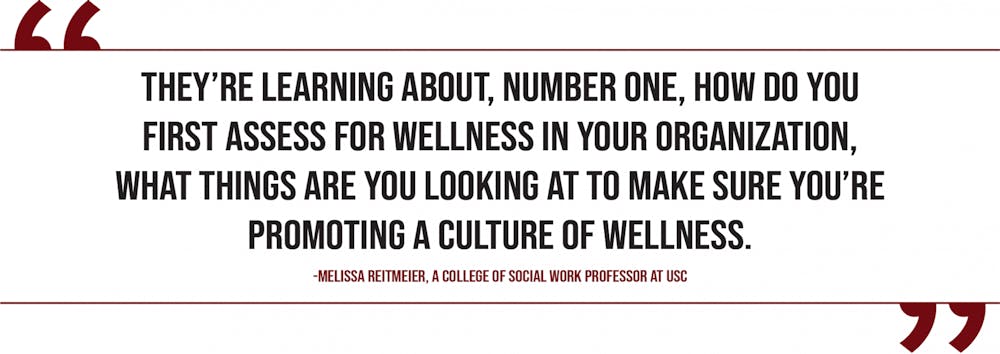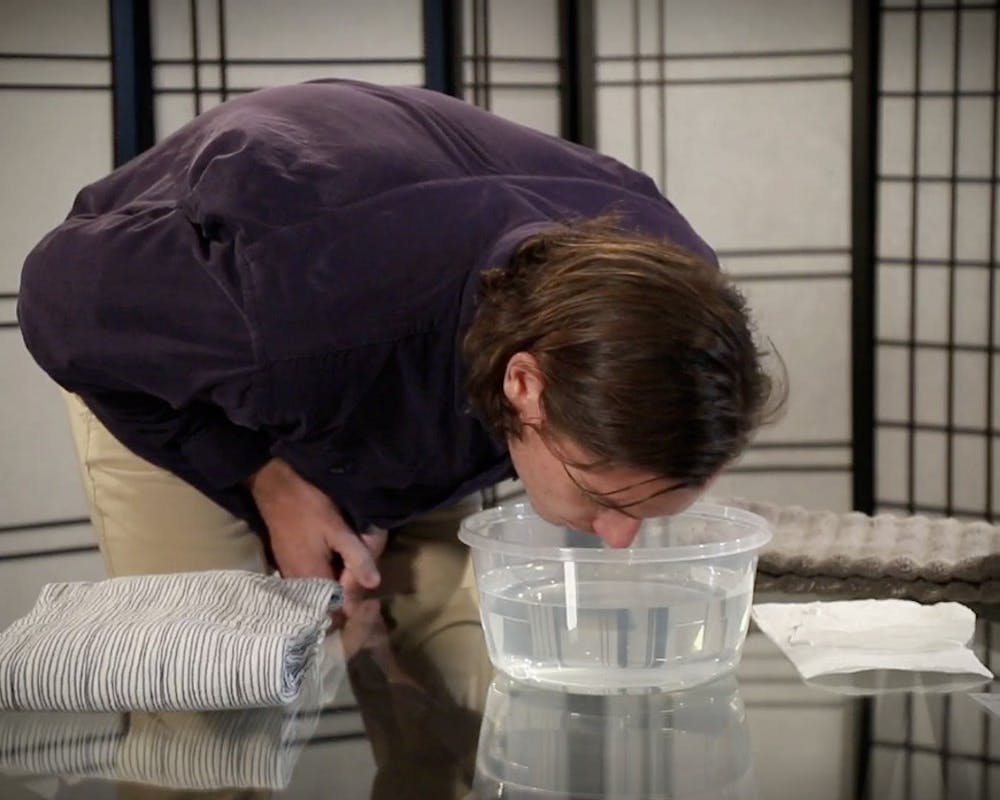The Health Occupation Providing Excellence in Workforce Wellness and Resiliency launched a project in 2022 to help combat health care worker burnout.
The project is funded by a $1.7 million grant from the Health Resources and Services Administration, an agency within the U.S. Department of Health and Human Services.
The grant was made to provide education about the signs people should look for to determine if they are experiencing burnout.Melissa Reitmeier, a professor within USC's College of Social Work, helped launch the project.
Reitmeier collaborated with the university's College of Pharmacy, as well as the College of Nursing to create free training sessions for students, current practitioners and organizational leadership. All trainings are offered virtually around two to three times a month.
“I think that (the project) has really helped, its opened people's eye to what burnout truly really is and how it has impacted the health care system, because we have educated them on the cost and the turnover rates in South Carolina,” Ala Bengal, the grant project coordinator, said.
The project provides six different trainings for health care workers, which have enabled leaders with a lot of information about how their organizations are supporting employees. As for students, they learn wellness skills, such as mindfulness and regulating stress.
Community practitioners and leaders are also learning to transform the health care industry’s organizational culture by providing tools to assess and manage burnout in the work environment.
“They’re learning about, number one, how do you first assess for wellness in your organization, what things are you looking at to make sure you’re promoting a culture of wellness," Reitmeier said.

The project wasstarted after the COVID-19 pandemic, as the state was seeing a decline in health care employees according to Melissa Reitmeier.
"On the front lines, I feel like I — our office — was very on top of what we were seeing as a result of the pandemic, we already knew there was a workforce shortage that was projected in the area of mental health," Reitmeier said. "And then all of the sudden, we started — I started to see in front of me the needs of students rising.
So far, Reitmeier said the project has received overwhelming positive feedback after they sent out post-training evaluations to participating healthcare workers. She said she hopes to continue to provide the training, especially due to a lot of misconception and misunderstanding about what self-care and burnout really are.
Aidyn Lachini, the co-principal investigator of the grant, focuses on the evaluations that the healthcare workers fill out after the trainings.
Lachini said,“From an evaluation perspective, folks have identified, one, being really satisfied with the trainings, but also more than that. I think more importantly, being able to identify key aspects of the training that they find useful and are considering implementing within their practice."
According to Melissa Reitmeier, the project soon hopes to build a website that will provide information that people can access anytime for free to get stress management tips.
“We are making an evidence-based tool kit, we are putting a lot of strategies and tips in there for the individual, but we’re also going to be building some strategies and tips for the leader,” Reitmeier said.

